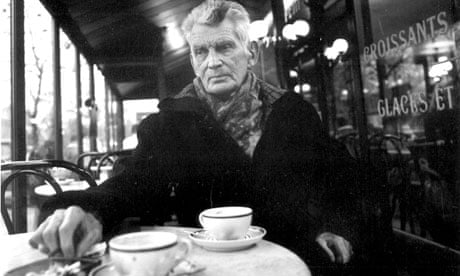Sunday, 31 August 2025
Des Menschen Jahreszeit
Wednesday, 27 August 2025
Grosse Literatur im Detail
Sunday, 24 August 2025
See you later
Wednesday, 20 August 2025
On Propaganda
When Brian Eno first visited Russia, in 1986, he made friends with Sacha, a musician whose father had been Brezhnev's personal doctor: "One day we were talking about life during "the period of stagnation" — the Brezhnev era. "It must have been strange being so completely immersed in propaganda," I said. "Ah, but there is the difference. We knew it was propaganda," replied Sacha. "That is the difference. Russian propaganda was so obvious that most Russians were able to ignore it. They took it for granted that the government operated in its own interests and any message coming from it was probably slanted — and they discounted it."
Propaganda is a term not much in use nowadays for we associate it readily with a regime that has absolute power to get certain things propagated — or suppressed — by all media. To put it in a more "neutral" way: propaganda consists of a deliberate attempt at controlling, or altering, peoples attitudes, hoping that a predictable behaviorial change would take place — this can be done in a variety of ways: most recently, governments that were for going to war with Iraq resorted to — if we believe their critics — hyping-up, distorting, manipulating, ignoring, and so on, and so on, information until it was to their liking: attitudes, clearly, were shaken.
|
Sunday, 17 August 2025
Einer reist mit
Wednesday, 13 August 2025
Farbenblind
Am Rande: Unter der Kapitelüberschrift "Racial Fusion" berichtet Tracy Novinger in "Communicating with Brazilians. When 'Yes' means 'No'":
„Recently, three years after the fact, it was discovered by chance that two babies had been switched at birth in the hospital. Each family loved the happy little boy it was raising. Despite daily news coverage and avid public interest in custody considerations, no reports remarked on the fact that one of the boys was black and was accepted at birth by white parents and that the other boy was white and was raised without question by dark-skinned parents.“
Farbenblind ist nicht nur nützlich und vielfältig informativ, sondern auch anregend. Es sei eine Ironie des Schicksals, so Coleman Hughes, "dass in den USA inzwischen die Identität des Boten statt der Inhalt der Botschaft darüber entscheidet, wie Martin Luther Kings Worte aufgefasst werden." So problematisch das auch ist, die Vorstellung, dass es um die Sache gehen müsste, ist fast ebenso problematisch, weil man dann unter anderem beim Argument landet, auch Trump habe gelegentlich Recht. Nur eben: Diese Art von politischen Anstand fordern zwar die Trumpianer, die allerdings überhaupt nicht daran denken, dem politischen Gegner Gleiches zuzugestehen. Meines Erachtens geht es immer um die Person und die Sache: Von einem Psychopathen lasse ich mir grundsätzlich nichts sagen.
Sunday, 10 August 2025
Giving the moment significance

In 2012, in the Guardian's "My best shot"-series, there was a piece on John Minihan and one of his photographs of Samuel Beckett. In the interview, Minihan commented on this picture: "This is Samuel Beckett in a café in Paris. He set it all up. He wanted the picture to say: This is who I am." I especially warmed to this remark of Minihan: "To my mind, a 16th of a second is nothing out of someone's life." I've never understood why, for instance, a picture of somebody caught off guard should reveal something meaningful. Or why a staged photo should tell me anything other than what it is: a staged photo.
Photography is commonly understood as showing us a moment in time. This of course implies that there is such a thing as time — and that, of course, is a matter of belief. In her study Dakota. A Spiritual Geography, Kathleen Norris (1993) quotes Martin Broken Leg, a Rosebud Sioux who is an Episcopal priest, addressing an audience of Lutheran pastors on the subject of bridging the Native American/white culture gap:
| "'Ghosts don't exist in some cultures,' he said, adding dismissively, 'they think time exists.'" |
| "I shook the podium one last time, and, before dismissing class early, admonished them: 'All life offers us is the moment. There is only the ravishing spontaneity of being, then nothing more. Moments, people — enhearten them, for they are fleeting' (...) Moments are fleeting? I sounded as dramatic and fake as the romantic poetry glued to English teachers' in-boxes. Was 'enhearten' even a word?" Let us, for the sake of argument, assume that time exists: why is it then that moments captured by a camera should be especially meaningful? I mean: why this moment and not the one just before this moment or the one after? Can we really just pick and choose at will from the continuous flow of what we call moments and then claim that what we chose should hold special significance?
|

























